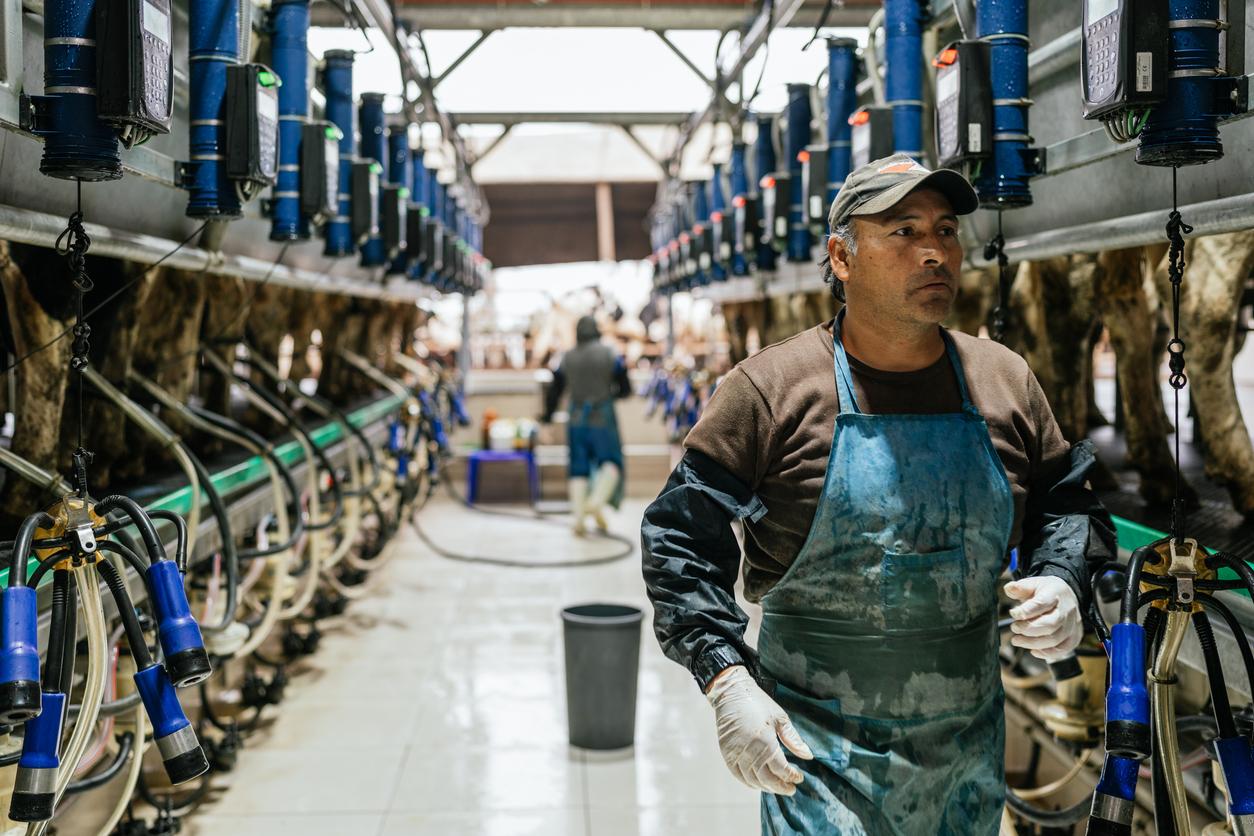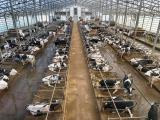A group led by Michigan clinicians yesterday described two H5N1 avian flu infections in dairy workers who were sick in May, one with conjunctivitis and the other with more systemic flulike symptoms. They detailed their findings in a letter to the New England Journal of Medicine.
The workers were employed at two separate farms. The first patient began having right-eye symptoms 1 day after milk had splashed in their eye while milking a cow. The worker had not been wearing personal protective equipment. Nasopharyngeal samples were negative in tests at the Centers for Disease Control and Prevention (CDC), but the eye swab sample was positive for H5N1 influenza.
Meanwhile, the worker from the second farm sought evaluation at an urgent care clinic after experiencing symptoms such as cough, shortness of breath, sore throat, and fever. Illness signs turned up in the cows 1 day before the worker's symptoms began, and H5N1 was confirmed in the herd 1 week later.
The worker had cared for sick cows, including administering oral fluid therapy, which typically involves contact with the animal's oral secretions. The worker used eye protection and gloves, but not a respirator or a mask.
On day 8 of illness, the patient was given oseltamivir (Tamiflu) and began home isolation. Symptoms began improving 24 hours after treatment began. Testing of a nasopharyngeal sample at the CDC was positive for H5 influenza, which the CDC later identified as H5N1. Eye and oropharyngeal samples were negative.
The authors said the infections highlight the ongoing risk to farm workers who are exposed to raw milk and secretions from infected cows.
More H5N1 confirmed in cows and poultry
The US Department of Agriculture (USDA) Animal and Plant Health Inspection Service (APHIS) today added one more dairy herd from Colorado to its list of confirmed H5N1 outbreaks, raising the national total to 190 from 13 states. Colorado is the hardest-hit state, with 63 of the confirmed outbreaks.
Meanwhile, APHIS confirmed one more outbreak in poultry, which involves a facility in Florida's Miami-Dade County that has 5,400 birds. In July, APHIS had reported H5N1 outbreaks in three Miami-Dade live-bird markets.



















